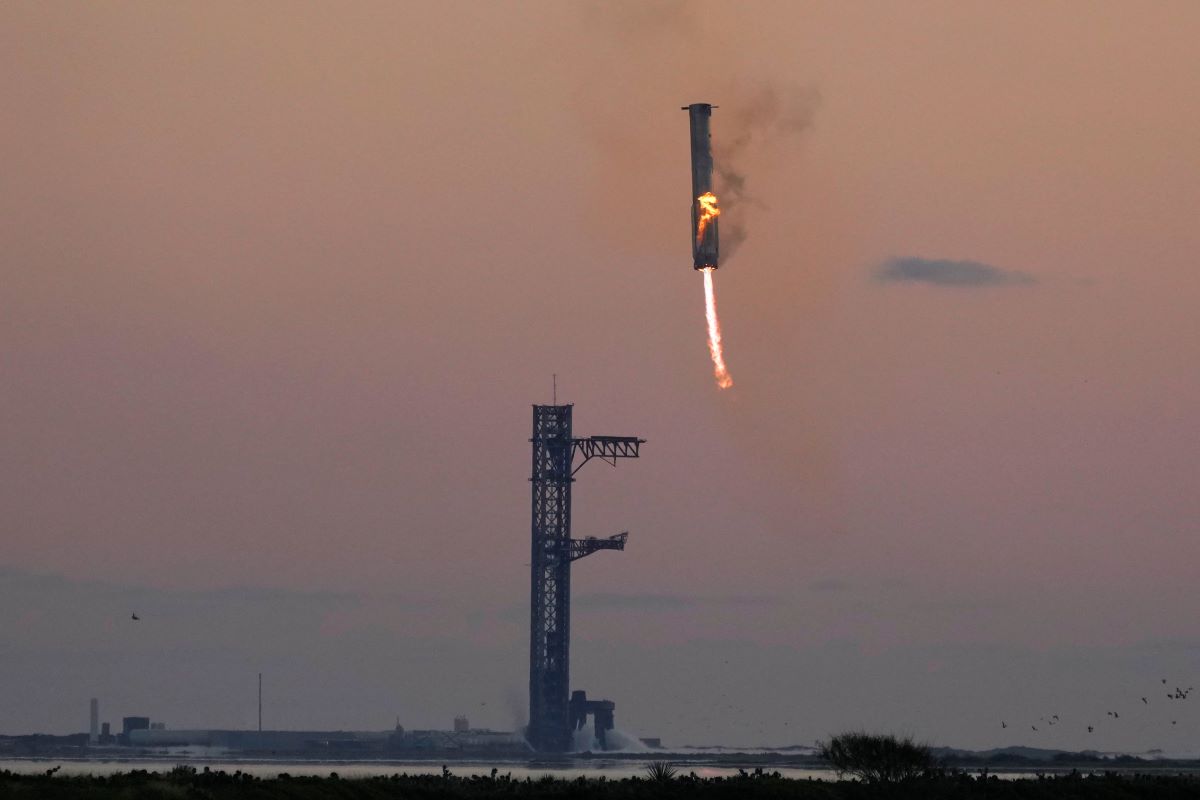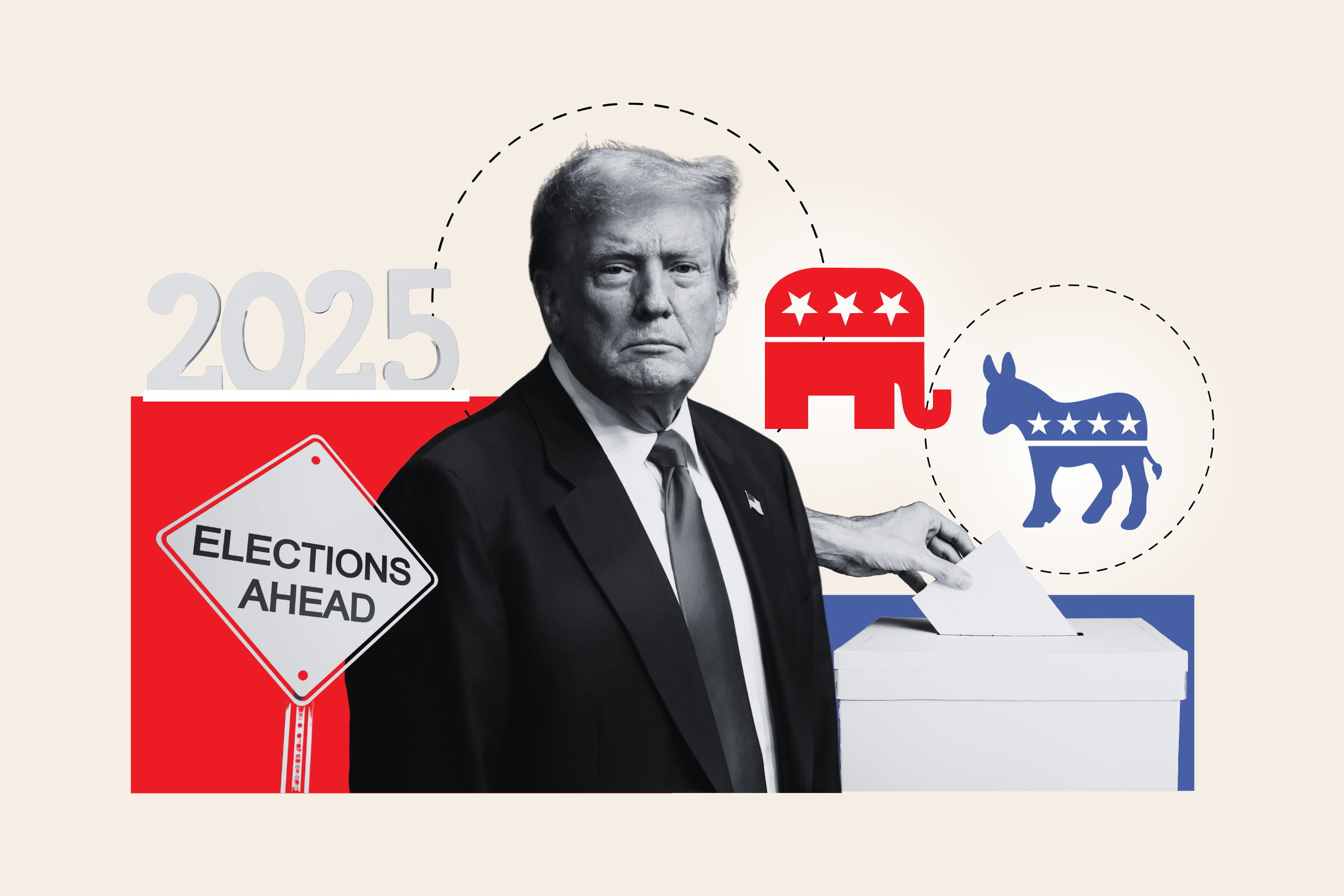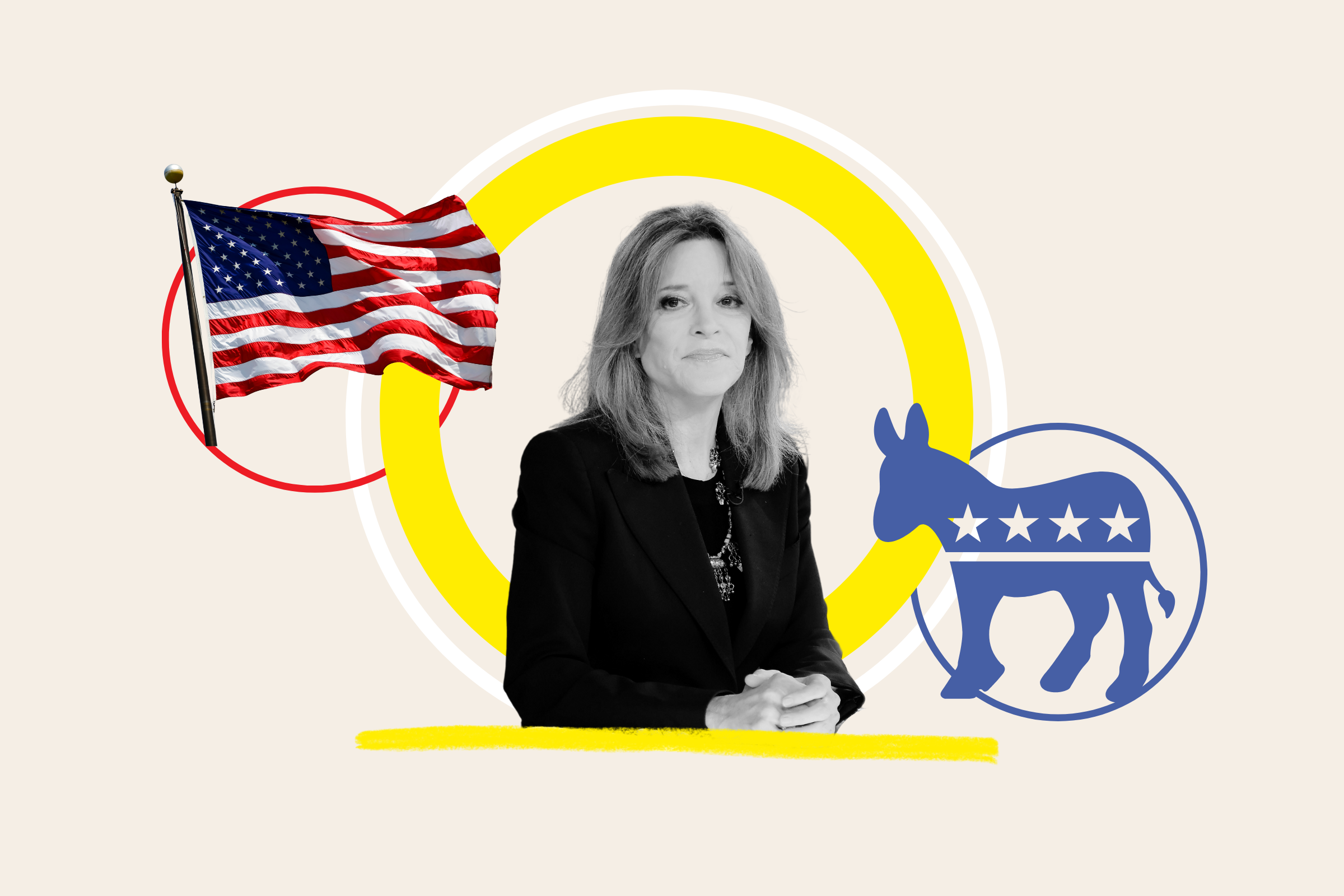Amid Republican interparty contention over H-1B visas and immigration policy, some misconceptions about workers' ability to change employers have been circulating, with some critics of the program likening it to indentured servitude.
Newsweek has reached out to the U.S. Citizenship and Immigration Services media team for comment on Sunday.
Why It Matters
President-elect Donald Trump campaigned on a platform of cracking down on immigration and carrying out mass deportations, pledges supported by many of his loyalists.
However, two top Trump advisers, Vivek Ramaswamy and Elon Musk, who are set to co-lead the new Department of Government Efficiency (DOGE), have a less strict stance on the issue, and their social media posts this week have caused blowback within the GOP.
At the center of the debate is the H-1B visa program, which allows U.S. companies to employ foreign workers with specialized knowledge or expertise. Some critics of the program are calling it "indentured servitude" of foreign workers, saying that visa holders cannot change jobs.
While changing jobs as a visa holder is more logistically challenging and expensive than it is for American citizens, it is possible if the proper paperwork is filed and approved.

What To Know
This week, Indian American entrepreneur and venture capitalist Sriram Krishnan's appointment as Trump's artificial intelligence (AI) policy adviser caused a stir among supporters, as has Ramaswamy's recent social media post calling out American work culture and Musk saying there aren't enough "super talented" engineers in the U.S.
Ramaswamy's lengthy post on X, formerly Twitter, argued that tech companies need foreign workers because Americans don't have a good enough work ethic and that American culture "venerated mediocrity over excellence."
For specialized foreign workers to legally work in the U.S., they must be sponsored by employers and approved. Tech companies, financial institutions, and universities are often the most frequent sponsors. In 2024, Amazon, Google, Meta and other major companies dominated the market, each receiving several thousand visas.
Musk, a South African naturalized U.S. citizen and owner of SpaceX and Tesla, has professionally and personally benefitted from H-1B visas. He first entered the U.S. on a J-1 academic visa that he says changed to an H-1B visa. Tesla reportedly brought hundreds of employees to the U.S. through the program last year.
The H-1B visa program provides temporary stay in the U.S. to specialized foreign workers. There is an annual cap of 65,000 new H-1B visas that can be issued. An "additional 20,000 petitions filed on behalf of beneficiaries with a master's degree or higher from a U.S. institution of higher education are exempt from the cap," according to the U.S. Citizenship and Immigration Services (USCIS).
Extensions and employment changes (like switching employers) are exempt from the annual cap in most cases.
According to USCIS data, thousands more applications are filed and approved annually than the 65,000 cap, indicating numerous petitions for new employers and continuing employment extensions.
Unlike the definition of indenture servitude, in which someone works for a single employer without pay, visa holders may change employers and are paid. However, visa holders face more obstacles when changing jobs compared to American citizens.
Some critics of the program acknowledge that while visa holders can switch employers, they may be unable to secure a higher salary at a better company if the petition process is not approved, reiterating their concerns of "indentured servitude." Others note the limited mobility to the visa holders as they are tied to their sponsoring employers, and some have raised concerns over underpayment.
H-1B visa holders can "begin working for the new employer as soon as they properly file a non-frivolous Form I-129 petition on your behalf, or as of the requested start date on that petition, whichever is later," USCIS states. However, they are not guaranteed their updated visa for their new employer will be approved.
If a visa holder's petition from a new employer is denied, they may continue working for their previous employer if their authorization period is still valid. However, their "authorization to work based on portability ceases upon denial of the petition."
Some visa holders may be laid off, fired, or choose to quit their jobs, in which case they have up to 60 days "or until the end of your authorized validity period, whichever is shorter, to find new employment, change status, or depart the country."
As part of the employer's filing on behalf of the applicant, a Labor Condition Application must be included, certified by Department of Labor. The application requires the employer to acknowledge they will comply with labor requirements.
One such requirement outlined by the USCIS is: "The employer/agent will pay the H-1B worker a wage which is no less than the wage paid to similarly qualified workers or, if greater, the prevailing wage for the position in the geographic area in which the H-1B worker will be working."
What People Are Saying
Sohrab Ahmari, an author and columnist, posted on X on Thursday: "It's indentured servitude for the visa recipients. And native-born workers won't do these jobs? Then why are they sometimes asked to train their own H1B replacements *before* they're laid off? Yes, this happens."
Ann Coulter, a conservative commentator and author, posted on X on Thursday: "American workers can leave a company. Imported H1B workers can't. Tech wants indentured servants, not "high-skilled" workers."
Conservative writer Ana Bredenberg replied to a post on X on Friday: "More indentured servitude with H 1B. The best has never ever come through on H 1B Visas. They come through O-1 Visas. You've been gaslighted."
David Bier, director of immigration studies at the think tank Cato Institute, wrote in an April 2024 blog post: "From fiscal year 2005 to 2023, H‑1B workers changed jobs over 1 million times (1,090,890). The number of switches grew from about 24,000 in 2005 to a record 130,576 in 2022—a more than fivefold increase. In fiscal year 2023, H‑1B workers changed jobs 117,153 times, a slight decline from 2022." Later in the post he wrote, "Of course, it is true that H‑1B workers are still not treated equally in the labor market."
What Happens Next
As of Saturday, Trump has not publicly addressed interparty debates over H-1B visas. He will be inaugurated on January 20, after which the new administration will decide what, if any, changes will be made to the legal immigration process.




















 English (US) ·
English (US) ·